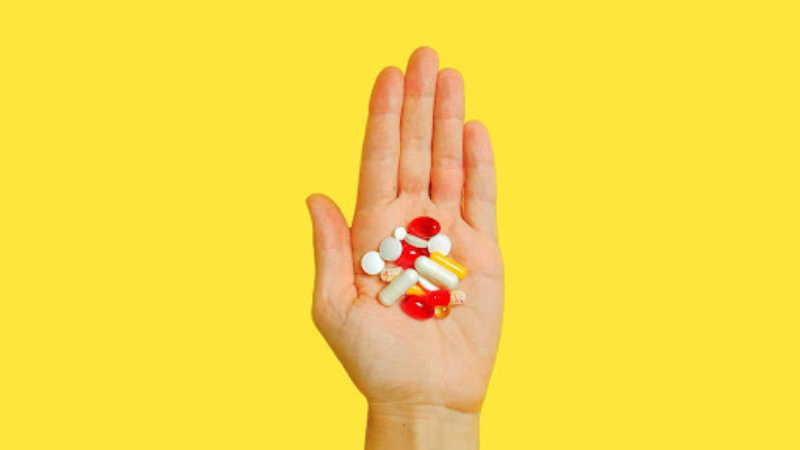It’s true that some people consume supplements based on unfounded claims about treating vascular conditions. While dietary supplements haven’t been shown to address PAD or other vascular concerns effectively, there are proven strategies that can make a significant difference. Working with a vascular specialist allows you to explore a personalized approach to improve your condition.
Understanding Vascular Health
In the United States, more than eight million individuals over the age of 40 have PAD¹. Peripheral artery disease is a serious medical condition that reduces blood flow to the legs and feet. Individuals with PAD don’t receive enough blood or oxygen to their extremities. This can lead to leg pain, numbness, weakness, and discoloration.
If you don’t have PAD but want to improve your vascular health, talking to one of our vascular specialists can help you find the right action for your specific situation, whether it’s adjusting your diet, getting more exercise or exploring treatment options. You will receive expert recommendations for lowering your risk of developing vascular health issues in the future. And, if you’re already exhibiting signs of PAD, they recommend you schedule an appointment to evaluate your condition in detail and discuss treatment plans.
Why Choose Us?
At USA Vascular Centers, our team is passionate about helping our patients improve their health and quality of life. We offer:
- Preventive care: Learn actionable steps to reduce your risk of developing vascular issues in the future, including dietary adjustments, exercise recommendations, and lifestyle modifications.
- Expert advice: Get personalized guidance from our highly qualified vascular specialists who understand your unique needs and concerns.
- Early detection: If you notice any signs of PAD, such as leg pain, numbness, or fatigue, we can connect you with a vascular doctor for prompt evaluation and treatment options.
Don’t wait to take action! Schedule a consultation with one of our vascular specialists today and start your journey towards a healthier future.
Stay Up-To-Date on Your Vascular Health
The Dangers of Relying Solely on Supplements
Not all dietary supplements are created equal. While many may be marketed to help people with managing PAD symptoms, there are many risks associated with relying solely on supplements to improve your quality of life.
The FDA regulates supplements differently than drugs, requiring manufacturers to ensure safety but not to prove effectiveness. Even with a lack of regulation, a recent survey found that over 75% of Americans use dietary supplements daily, highlighting the need for accurate information.³
If you’re living with PAD, common supplements that may be suggested to you include:
- Vitamin C: Research suggests patients with PAD have a lower concentration of vitamin C.4 However, adding more vitamin C to your diet with a supplement can lead to abdominal pain, anemia, and kidney stones. There is also no research or data to show that vitamin C supplements can help treat PAD or other cardiovascular diseases.
- Omega-3: Omega-3 is found in fish sources, and many people take fish oil supplements as part of their daily routine. However, overconsumption of omega-3 can lead to high blood sugar, headaches, heartburn, or even vitamin A toxicity.
- Vitamin D: Studies suggest that individuals with lower vitamin D levels are more likely to develop PAD.5 However, there is no data to suggest there is a significant association between vitamin D and PAD. Taking vitamin D in the form of a supplement can lead to dehydration, muscle weakness, and headaches.
PAD requires comprehensive management, including lifestyle changes, along with possible medication and medical intervention. Supplements aren’t a substitute for these approaches.
The Importance of Medical Treatment
Individuals with PAD can benefit from lifestyle changes for temporary relief from symptoms, but lifestyle changes won’t address the arterial blockages that are caused by PAD.
PAD is a serious health condition that can affect your general mobility. While evidence for the specific benefits of PAD is lacking, some supplements might offer general health benefits, especially when combined with other approaches, including professional medical intervention to improve your situation. Non-surgical and outpatient medical treatments for PAD can help reduce symptoms and improve mobility. It can also help prevent your risk of a heart attack, stroke, or limb amputation.
The Myth of ‘Miracle’ Supplements
The truth is, there is not enough research to suggest taking supplements can improve your vascular health. Supplements like antioxidants and multivitamins are seen and marketed as miracle supplements. However, there isn’t enough scientific evidence or data to back these health supplement myths and false claims.
One of the dangers of supplements is that they provide a false sense of hope. Patients believe in filling their routine with artificially made supplements that are not regulated or tested. In some instances, believing in these health supplement myths can delay treatment, leading to more serious complications later down the line. Supplements are not ‘miracle’ workers. If you’re exhibiting signs of PAD or any other vascular health conditions, we recommend scheduling a consultation with a vascular doctor and exploring other treatment options available.
Lifestyle Changes for Vascular Health
A heart-healthy diet, regular exercise, and positive lifestyle changes can improve your quality of life and help you maintain your vascular health. A vascular specialist may ask you to quit smoking, lower your blood pressure, or provide you with a meal plan for your diagnosis.
However, you cannot reverse PAD. If the blood flow in your arms or legs is completely blocked, it is recommended that you pair medical treatment with these lifestyle changes.
When comparing treatment vs. supplements, treatment will always be the more suitable option for your vascular health. Treatments for PAD are minimally invasive and have a high success rate.
Discuss Treatment Plans With USA Vascular Centers Today
PAD is a serious progressive health condition, and you can put yourself at risk if you aren’t familiar with the supplements you’re taking. At USA Vascular Centers, we specialize in minimally invasive treatments for PAD that can help alleviate your symptoms and improve your quality of life.
Treatment is a more effective and safer option than unregulated supplements. However, there are some supplements that may be good for some deficiencies. We recommend consulting your medical provider before introducing new supplements into your daily routine.
To explore your treatment options, schedule an appointment today.
Resources
- What Is Peripheral Artery Disease? | NHLBI, NIH. (2022, March 24). NHLBI, NIH. https://www.nhlbi.nih.gov/health/peripheral-artery-disease
- Too Little, Too Late: Ineffective Regulation of Dietary Supplements in the United States | NHLBI, NIH. (2015 March). NHLBI, NIH. https://www.ncbi.nlm.nih.gov/pmc/articles/PMC4330859/
- CRN Reveals Survey Data from 2022 Consumer Survey on Dietary Supplements | Council for Responsible Nutrition. (n.d.). https://www.crnusa.org/newsroom/crn-reveals-survey-data-2022-consumer-survey-dietary-supplements
- Langlois, M., Duprez, D., Delanghe, J., De Buyzere, M., & Clément, D. (2001, April 10). Serum Vitamin C Concentration Is Low in Peripheral Arterial Disease and Is Associated With Inflammation and Severity of Atherosclerosis. Circulation. https://doi.org/10.1161/01.cir.103.14.1863
- Vitamin D status and peripheral arterial disease: evidence so far| NHLBI, NIH. (2011 November). NHLBI, NIH. https://www.ncbi.nlm.nih.gov/pmc/articles/PMC3225350

